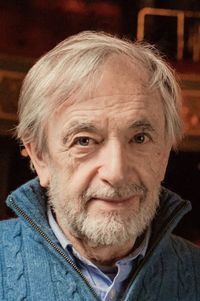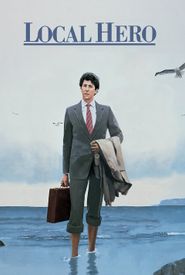Bill Forsyth, a Scottish film director and writer, was born on July 29, 1946, in Glasgow, a city renowned for its rich cultural heritage and storied history.
Forsyth's dedication to national filmmaking has been unwavering, earning him a prominent place in the industry for decades, marked by a trailblazing spirit and an unrelenting passion for storytelling.
The genesis of Forsyth's filmmaking journey can be traced back to a low-budget production, That Sinking Feeling, which he co-created with a group of talented youth theatre actors, featuring a memorable cameo appearance by Richard Demarco, an Edinburgh gallery owner of great repute.
The moderate success of That Sinking Feeling was amplified by Forsyth's subsequent film, Gregory's Girl, released in 1981, which showcased a talented ensemble of young actors, including the accomplished John Gordon Sinclair, who would go on to become a prominent figure in the Scottish film industry, as well as the acting debut of the captivating Clare Grogan.
Gregory's Girl was a major commercial success, garnering widespread acclaim and winning the prestigious BAFTA Award for Best Screenplay in 1981, a testament to Forsyth's exceptional writing skills and his ability to craft compelling narratives that resonate with audiences worldwide.
Bill Forsyth's subsequent film, Local Hero, released in 1983, was a resounding success, boasting a star-studded cast that included the esteemed Burt Lancaster. This cinematic masterpiece was subsequently ranked among the top 100 films of the 1980s in a comprehensive recap of the decade featured in Premiere magazine.
In 1984, Forsyth released Comfort and Joy, a film that delved into the captivating tale of a Glasgow radio DJ caught in the midst of a rivalry between two ice cream companies. Clare Grogan once again took center stage in this captivating cinematic endeavor.
When David Puttnam, the producer of Local Hero, made the transition to Hollywood, Forsyth followed suit. However, his success in America was somewhat limited. His first American film, Housekeeping, was released in 1987, marking a significant milestone in his career. Additionally, another film, Being Human, remained shelved for a period of four years following Puttnam's departure.
In the year 2000, Forsyth brought forth a sequel to his highly acclaimed film Gregory's Girl, entitled Gregory's Two Girls, which garnered mixed reviews from critics and audiences alike.
Despite the lukewarm reception of his sequel, Forsyth remained dedicated to his craft, continuing to work on new and innovative projects, including a film titled Exile, which was in various stages of development as of a 2009 interview with BBC Radio 5 Live.
Throughout his illustrious career, Forsyth has consistently demonstrated a deep-seated commitment to telling stories that are deeply rooted in his Scottish heritage, and his films have become beloved by audiences all around the world, transcending cultural boundaries and resonating with viewers of all ages.
Forsyth's dedication to his craft, combined with his passion for storytelling, has resulted in a body of work that is both critically acclaimed and commercially successful, solidifying his position as a respected and accomplished filmmaker in the industry.




























